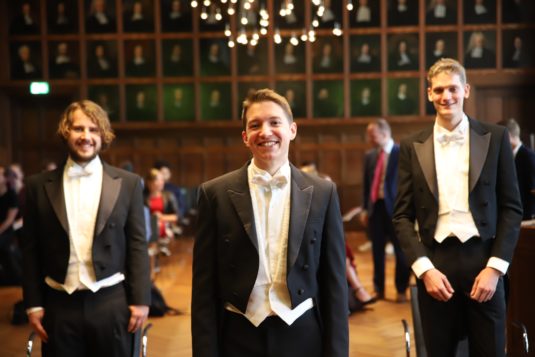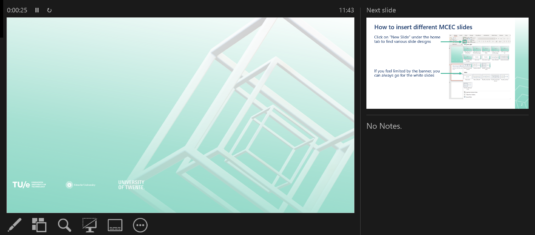Dear MCEC Member,
Please have a look at the brand new MCEC PowerPoint Template. Let us know what you think of the new design. In our latest MCEC Newsletter you can read about:
- Upcoming Events
- MCEC Lecture series
- Update: MCEC Demonstrator Videos
- Dr. Stijn Hinterding (UU) successfully defended his thesis
- Freddy Rabouw (UU) receives VIDI-grant
- New MCEC PowerPoint Template Design
- MCEC Publications
Get in touch with us on LinkedIn!
Upcoming Events
MCEC School 2021: October 18-22
This fall will be the 6th (and last) MCEC School specifically organized for MCEC PhD students and the Postdocs as part of their training program. This years’ location will be the Van der Valk Hotel Apeldoorn.
Registration – MCEC School 2021 for PhD and PD / Registration – MCEC School 2021 for Members
NWO CHAINS 2021: 7-8 December
NCCC 2021: 7-9 March
Abstract submission deadline: Monday October 18
NAM 2021: 22-27 May
Abstract submission deadline: Monday November 8
MCEC Lecture Series
The purpose of the MCEC Lecture Series is to show our PhD candidates what the possibilities are after completing their PhD.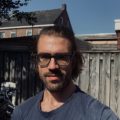
On Thursday September 23, 11:00 AM our guest will be Dr. Pablo Peñas
A short introduction:
My name is Pablo Peñas and I am a Postdoc at the Physics of Fluids Group at UT. My research for the last seven years has revolved around the topic of gas bubbles and mass transfer. Since I am still in my final year as an MCEC member, the concept of “Life after MCEC” strictly does not apply to me. Nonetheless, in my talk I will mainly cover some of my academic experiences, especially those concerning MCEC and other MCEC members. In fact, my first encounter with MCEC dates back to August 2015. As you may imagine, much has happened since then!
Update: MCEC Demonstrator Videos
Behind the scenes, our MCEC Demonstrator Teams have been working thoroughly on their projects. To give you a glimpse of what waits ahead, we visited each team this summer to get a better understanding of their project, their goals and expectations. The MCEC Demonstrator project pages will be shared shortly!
Visualizing Multiscale Catalysis
Noah Romijn, Edo de Kruiff, Erik Maris, and Dr. Ivo Filot
Movie animations have been widely used to transfer knowledge to a general audience. Therefore, we aim to produce readily available, free-to-use animations about the topics and research that tie MCEC together. Using our initial animation we will show the core principles behind the MCEC consortium, after which we will use input provided by MCEC PhD’s to produce subsequent ones. These animations will further explore the work performed by the MCEC consortium and how that work fits within the principles shown. Finally, these animations will be shown in outreach locations, such as film festivals and conferences.
Pyrolystrator
Christia Jabbour, Ina Vollmer, Michael Jenks, Ferdy Coumans, Jérôme Simons, and Dr. Florian Meirer
With the growing environmental concerns of plastic waste, new methodologies are needed to reduce mankind’s impact on nature. Plastics waste is considered a huge burden on our society due to its chemical inertness. Pyrolysis, the thermal breaking of molecules, is a suitable method to “cut” these long polymer chains into suitable molecules for the production of fuels or chemical building blocks. In this project, we demonstrate this concept to an audience, a compact and mobile setup will be used to highlight the fundamental principles of polymer pyrolysis. The potential of plastic pyrolysis and the necessity to utilize new approaches to reduce CO2 emissions and lower our impact on the environment are highlighted with this demonstrator.
Catalysis: Storing Green Energy for the Future
Romy Riemersma, Roos Krösschell, Akash Raman, Francesco Cannizzaro, Jochem van Duin, and Dr. Ward van der Stam and Dr. Mathieu Odijk
Electrons generated from various clean energy sources such as solar and wind can be converted into other forms of energy. We can store this energy in the chemical bonds in molecules such as hydrogen. We demonstrate the fundamentals behind this transformation in a fun, visually engaging way by bringing the whole process to your table top. With our demonstrator you can see your own work generating clean hydrogen right before your eyes
Dr. Stijn Hinterding (UU) successfully defended his thesis
Beyond the ensemble; Excited-state dynamics unveiled by single-nanoparticle spectroscopy
Light-conversion technology plays an important role in our modern society, from smartphones to room lights to solar panels. Although current light-converting devices perform adequately, they can be made even better: more efficient, durable, and light-weight. Semiconductor nanocrystals, also called “quantum dots”, hold promise for all these kinds of improvements. These particles are extremely small: “nano”-sized, and are good at absorbing light and emitting light of a different colour: they are fluorescent.
Quantum dots exhibit behaviour that we do not understand. Some quantum dots emit light with a very low colour purity (containing many different colours), some are very dim, and some take a very long time before they re-emit absorbed light. For many use cases this behaviour is bad, so we would benefit from a better understanding of the underlying physics and chemistry.
In conventional experiments, billions and billions of quantum dots are measured simultaneously. Such “ensemble scale” experiments do reveal some properties, but many remain hidden. A very different approach is needed to uncover these hidden properties: by studying only a single particle at a time, using a microscope.
In this research we look beyond the ensemble, at only one nanoparticle at a time. We uncover what happens between absorption of a photon by a quantum dot, and subsequent emission. Our work provides new insights into the odd behaviour of individual quantum dots – sudden changes in colour, switches between fast and slow fluorescence, as well as the origins of low colour-purity. These fundamental insights provide a stepping stone for the use of quantum dots in future light-conversion technologies.
Freddy Rabouw (UU) receives VIDI-grant
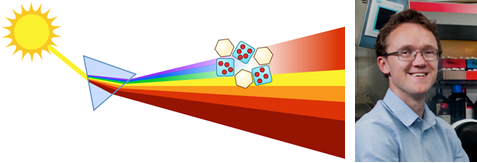 Blue and ultraviolet sunlight are highly energetic. Current technologies to harvest sunlight cannot use this energy efficiently. “Quantum cutting”, the conversion of blue and ultraviolet light into infrared, can change this. Freddy’s project ‘Science: Quantum cutting sunlight with Yb3+-doped perovskite’ will develop strategies for more efficient quantum cutting, which will inspire new technologies for sustainable energy production.
Blue and ultraviolet sunlight are highly energetic. Current technologies to harvest sunlight cannot use this energy efficiently. “Quantum cutting”, the conversion of blue and ultraviolet light into infrared, can change this. Freddy’s project ‘Science: Quantum cutting sunlight with Yb3+-doped perovskite’ will develop strategies for more efficient quantum cutting, which will inspire new technologies for sustainable energy production.
Last year, Rabouw received the Heineken Young Scientists Award in the category Natural Sciences from the Royal Netherlands Academy of Arts and Sciences (KNAW), for his research on new materials to generate light, for example for solar cells or display screens.
Many congratulations Freddy!
New MCEC PowerPoint Template Design
For future presentations use the new MCEC Powerpoint design available on the MCEC Website.
MCEC Publications
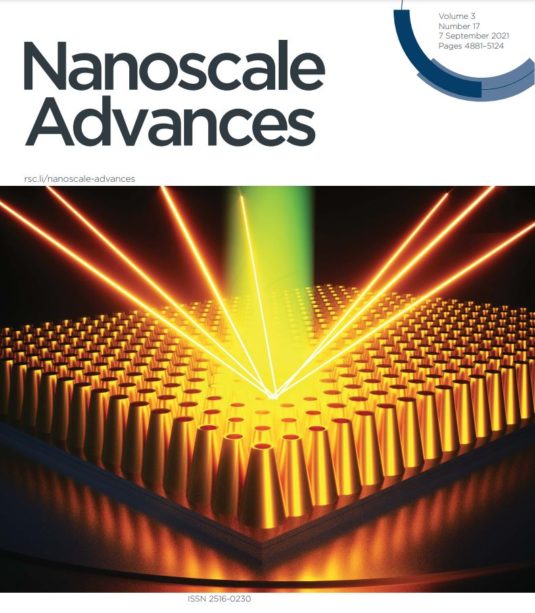 A wafer-scale fabrication method for threedimensional plasmonic hollow nanopillars
A wafer-scale fabrication method for threedimensional plasmonic hollow nanopillars
D. Jonker (UT), Z. Jafari, J. P. Winczewski, C. Eyovge, J. W. Berenschot,
N. R. Tas, J. G. E. Gardeniers, I. De Leon and A. Susarrey-Arce
MCEC PhD Dirk Jonker‘ (UT) publication reports on the fabrication and modification of a top-down nanofabrication platform for enormous parallel silicon nanowire-based devices. In they paper the authors explain the nanowire formation in detail, using an additive hybrid lithography step, optimising a reactive ion etching recipe for obtaining smooth and vertical nanowires under a hybrid mask, and embedding the nanowire in a dielectric membrane.
Beyond Mechanical Recycling: Giving New Life to Plastic Waste
Dr. Ina Vollmer, Michael J. F. Jenks, Dr. Mark C. P. Roelands, Dr. Robin J. White, Dr. Toon van Harmelen, Dr. Paul de Wild, Dr. Gerard P. van der Laan, Dr. Florian Meirer, Prof. Jos T. F. Keurentjes, Prof. Bert M. Weckhuysen
